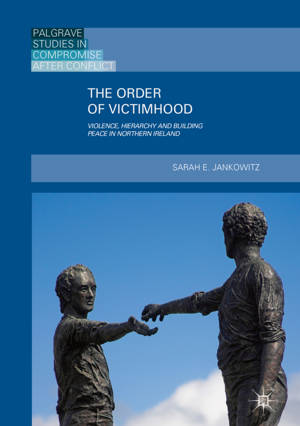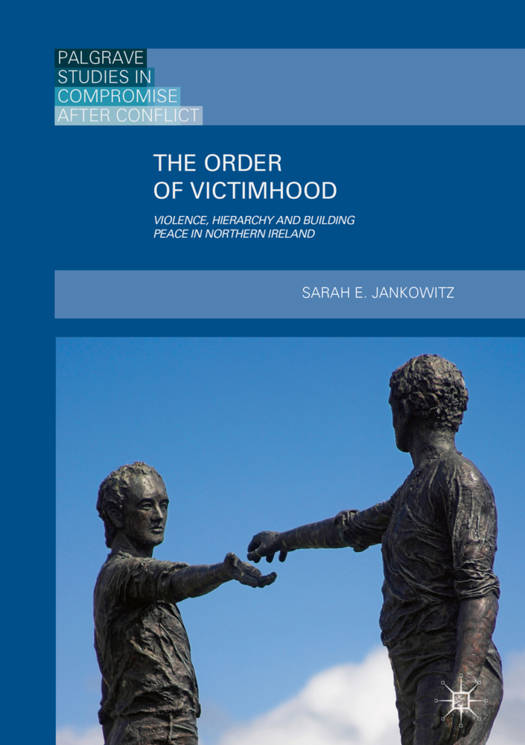
- Afhalen na 1 uur in een winkel met voorraad
- Gratis thuislevering in België vanaf € 30
- Ruim aanbod met 7 miljoen producten
- Afhalen na 1 uur in een winkel met voorraad
- Gratis thuislevering in België vanaf € 30
- Ruim aanbod met 7 miljoen producten
The Order of Victimhood
Violence, Hierarchy and Building Peace in Northern Ireland
Sarah E JankowitzOmschrijving
This book explores how the construction and contestation of victims in societies emerging from conflict impact processes of peacebuilding. It locates its inquiry in Northern Ireland where highly politicized, unresolved narratives of violence and a so-called 'hierarchy of victims' illuminate inherent paradoxes of victimhood in intergroup conflict. The author critiques how mechanisms designed to address the legacy of conflict often reify exclusive 'victim' and 'perpetrator' identities and obscure complex harm. Adopting an interdisciplinary lens, the book examines how the image of the ideal victim interacts with intergroup processes in a polarizing and intractable victim-perpetrator paradigm. The analysis of these issues in Northern Ireland suggests that exclusive policies and mechanisms reinforce rather than repair societal divisions, and that inclusive, complex approaches to victimhood are necessary to build sustainable peace. This book will be of particular interest to scholars of peace studies, transitional justice and criminology.
Specificaties
Betrokkenen
- Auteur(s):
- Uitgeverij:
Inhoud
- Aantal bladzijden:
- 218
- Taal:
- Engels
- Reeks:
Eigenschappen
- Productcode (EAN):
- 9783319983271
- Verschijningsdatum:
- 12/10/2018
- Uitvoering:
- Hardcover
- Formaat:
- Genaaid
- Afmetingen:
- 148 mm x 210 mm
- Gewicht:
- 426 g

Alleen bij Standaard Boekhandel
Beoordelingen
We publiceren alleen reviews die voldoen aan de voorwaarden voor reviews. Bekijk onze voorwaarden voor reviews.











